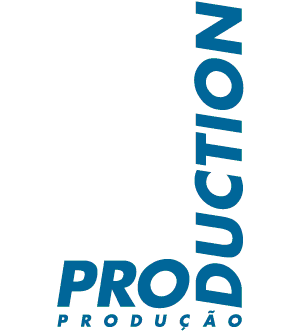Resumos
Esse artigo apresenta uma modelagem para integrar eficazmente diferentes tecnologias da informação de modo a aumentar a inteligência de organizações virtuais. O conceito de inteligência para uma organização virtual é analisado e as tecnologias da informação necessárias para a criação desse ambiente de negócios apresentadas, assim como um modelo integrador baseado na taxonomia tecnologia-serviços-processos-produção. Os maiores obstáculos e problemas para se obter uma organização virtual inteligente são descritos, assim como soluções para solucionar a questão. Tendências futuras e conclusões em relação a essa área de pesquisa são também apresentadas.
Tecnologia da Informação; Gestão do Conhecimento; Organização Virtual; Inteligência Empresarial; Sociedade do Conhecimento
This article presents a framework to integrate effectively different Information Technologies in order to raise the intelligence of Virtual Organizations. The concept of intelligence in a Virtual Organization is analyzed and the information technologies needed to create this business environment are presented, as well as an integrated model based on a technology-service-process-production taxonomy The main obstacles and hurdles to accomplish an intelligent Virtual Organization are presented as well as the solutions to overcome them. Future trends and some conclusions in this realm are still presented.
Information Technology; Knowledge Management; Virtual Organization; Knowledge Society
Tecnologia da informação para gestão do conhecimento em organização virtual
Luiz Antonio Joia
Professor Adjunto da Faculdade de Engenharia. Universidade do Estado do Rio de Janeiro - Uerj. E-mail: joia@uerj.br
RESUMO
Esse artigo apresenta uma modelagem para integrar eficazmente diferentes tecnologias da informação de modo a aumentar a inteligência de organizações virtuais. O conceito de inteligência para uma organização virtual é analisado e as tecnologias da informação necessárias para a criação desse ambiente de negócios apresentadas, assim como um modelo integrador baseado na taxonomia tecnologia-serviços-processos-produção. Os maiores obstáculos e problemas para se obter uma organização virtual inteligente são descritos, assim como soluções para solucionar a questão. Tendências futuras e conclusões em relação a essa área de pesquisa são também apresentadas.
Palavras Chaves: Tecnologia da Informação; Gestão do Conhecimento; Organização Virtual; Inteligência Empresarial; Sociedade do Conhecimento.
ABSTRACT
This article presents a framework to integrate effectively different Information Technologies in order to raise the intelligence of Virtual Organizations. The concept of intelligence in a Virtual Organization is analyzed and the information technologies needed to create this business environment are presented, as well as an integrated model based on a technology-service-process-production taxonomy The main obstacles and hurdles to accomplish an intelligent Virtual Organization are presented as well as the solutions to overcome them. Future trends and some conclusions in this realm are still presented.
Keywords: Information Technology, Knowledge Management, Virtual Organization, Knowledge Society.
Texto completo disponível apenas em PDF.
Full text available only in PDF format.
8. Referências Bibliográficas
- Badaracco, J. (1991). Knowledge Links. In: The Knowledge Link: How Firms Compete Through Strategic Alliances, chapter 5, pp. 107-128, Harvard Business School Press, Boston
- Bahrami, H. (1992) - The Emerging Flexible Organization: Perspectives from Silicon Valley, California Management Review, Vol. 34, No. 4
- Baker, W. (1994) - Building Intelligent Networks, Networking Smart, chapter 3, McGraw-Hill, Inc.
- Davenport, T.H. & Prusak, L. (1998). Working Knowledge, Harvard Business School Press
- Drucker, P. (1998). "From Capitalism to Knowledge Society". In: Neef D. (ed.). The Knowledge Economy, Butterworth-Heinemann, pp. 15-34
- Haeckel, S. & Nolan, R. (1993). "Managing by Wire", Harvard Business Review, September-October, pp. 122-132.
- Handy, C. (1997). The Hungry Spirit, Hutchinson, Random House, London
- Hansen, M.T., Nohria, N and Tierney T. (1999). What's Your Strategy for Managing Knowledge?, Harvard Business Review, March-April, pp. 106-126.
- Joia, L.A (1999). "A New Model for Workers' Retraining in Brazil" - Journal of Workplace Learning, Vol 11 Issue 4, 1999, MCB University Press.
- Keen, P (1991). Shaping the Future, Harvard Business School Press.
- Laubacher, R. & Malone, T. (1997). Two Scenarios for 21st Century Organizations: Shifting Networks of Small Firms or All-Encompassing "Virtual Countries"? , MIT Initiative on Inventing the Organization of the 21st Century, Working Paper 21C WP #001, Sloan School of Management, MIT
- Malone, T. & Crowston, K. G. (1994). The Interdisciplinary Study of Coordination, ACM Computing Surveys, Vol. 26, No.1, March, pp.87-119.
- Maturana, H.. & Varela, F.J. (1980) Autopoiesis and Cognition: The Realization of the Living, Reidl, London.
- McKenney, J.L., Zack, M.H. and Doherty, VS. (1992). "Complementary Communication Media: A Comparison of Electronic Mail and Face-to-Face Communication in a Programming Team", In: Nitin Nohria and Robert G. Eccles (eds.), Networks and Organizations: Structure, Form and Action, Chapter 10, Harvard Business School Press, 1992.
- Nonaka, I. & Takeuchi, H. (1995). The Knowledge-Creating Company: How Japanese Companies Create the Dynamics of Innovation, Oxford University Press, New York
- Polanyi, M. (1958). Personal Knowledge, Routledge, London
- Prusak, L.(1997). "Introduction to Knowledge in Organizations". In: Prusak L. (ed.). Knowledge in Organizations, Butterworth-Heinemann, pp. ix-xv
- Skyrme, D. (1997). "From Information to Knowledge Management: Are You Prepared?", Online '97, http://www.skyrme.com/pubs/on97full.htm
- Sveiby, K.E. (1997). The New Organizational Wealth, Berret-Koehler Publishers, Inc.
- Varela, F.J., Thompson E., Rosch E. (1992). The Embodied Mind, MIT Press, Cambridge, MA.
- Venkatraman, N . & Henderson, J.C. (1998). "Real Strategies for Virtual Organizing", Sloan Management Review, Fall, Volume 40, Nş 1, pp. 33-48.
Datas de Publicação
-
Publicação nesta coleção
05 Out 2010 -
Data do Fascículo
Dez 1999

